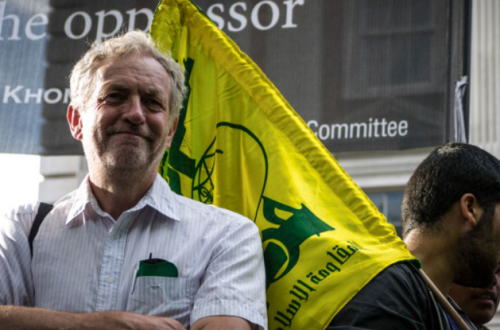This is a cross-post from Just Journalism.
Just Journalism has previously covered how the Muslim Brotherhood, the largest Islamist group in Egypt, has increased the number of seats it intends to contest in the upcoming elections. The Brotherhood also reportedly intended to coordinate its electoral campaign with Salafist groups, and was planning to form an Islamist coalition in the new parliament.
This week the Egyptian press has continued to report on the ongoing plans by Islamist groups to coordinate their efforts during September’s elections, in order to maximise the overall success of parties with an ‘Islamic frame of reference’.
On Saturday, Al Masry Al Youm reported on a conference where Khaled Saeed, described as a founder of the Islamist Fadila Party and a spokesperson for the Salafi front, told the paper that:
‘…his party presented this initiative, which would ensure that parties with an Islamic frame of reference will all back one candidate representing the whole bloc, preventing competition between members of different Islamic forces.’
These Islamist groups, which include extreme Salafists, would be explicitly coordinating their efforts with the Muslim Brotherhood:
‘He added that as soon as the elections law is issued, the Muslim Brotherhood will determine which constituencies they will contest and the rest of the seats will be distributed among the remaining parties.’
Al Masry Al Youm’s round-up of the Egyptian press on Monday contained further evidence of the Muslim Brotherhood envisioning an Islamist alliance. It reported that the Egyptian newspaper Al-Dostour had seen ‘important documents’ by the Muslim Brotherhood’s Khaled Abdel Qader Owda:
‘…calling for Egypt’s disparate Islamic groups to form an alliance in preparation for parliamentary elections slated for September. According to the paper, Owda admitted that he had extended the invitation to various Islamic groups but had “not yet received an official response to the document.”’
The prospect of the Muslim Brotherhood, which is viewed by many as the best organised group in Egypt, actively coordinating its electoral campaign with smaller parties in order to maximise the number of Islamists in any new parliament is especially noteworthy given that many of these Salafists are openly hostile towards liberals, secularists, Christians and women.
Yesterday, Al Masry Al Youm reported on comments made by Mohamed Mokhtar al-Mady, the ‘head of the Legislative Committee of the largest Salafi group in Egypt’. According to the article, al-Mady described those who opposed Islamists as ‘Satan’s followers’, and explained why Christians and women were politically inferior:
‘Al-Mady also said that no Christian has the right to become president as he would not know how to apply Islamic Sharia.
‘“Also women cannot be presidents,” he said. “They go weak when they get their periods, so how can we put the fate of the nation in their hands?”’
Nightwatchman adds:
In addition to Salafi groups, the Muslim Brotherhood has also
entered into an electoral alliance with a number of liberal Egyptian parties, including the nationalist, but secular, Wafd Party. While the alliance with the prominent Wafd Party could be seen as an attempt by the Brotherhood to increase their influence in the future Egyptian parliament, it is also a
reminder that stories about the Brotherhood teaming up with Salafists
to exclude secularists and liberals are only one aspect of a more
complicated political landscape.


